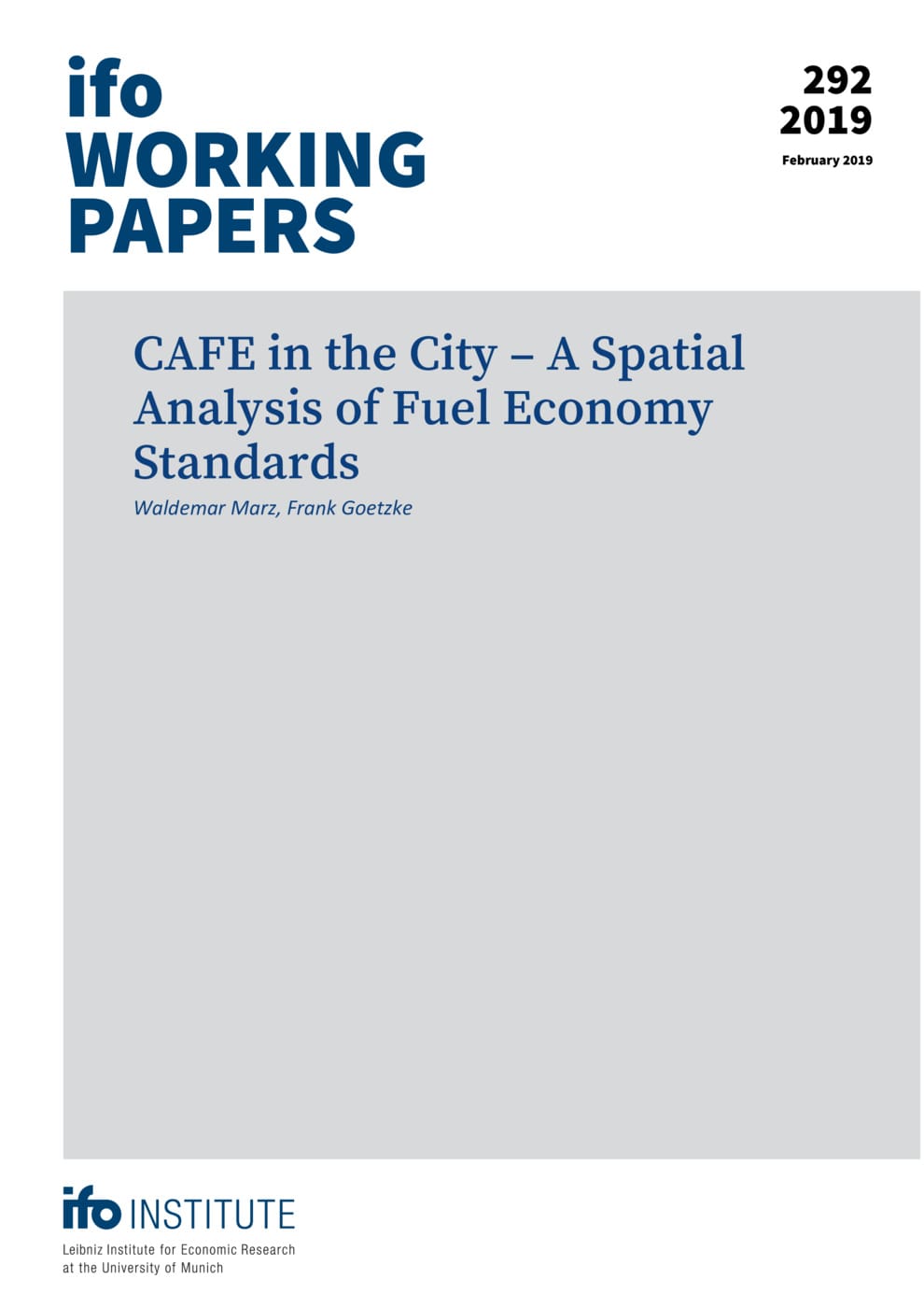CAFE in the City – A Spatial Analysis of Fuel Economy Standards
ifo Institute, Munich, 2019
ifo Working Paper No. 292

Climate policy instruments in the transportation sector like fuel economy standards (CAFE) and fuel taxes not only affect households’ vehicle choice, but also the urban form in the long run. We introduce household level vehicle choice into the urban economic monocentric city model and run long-term climate policy scenarios to analyze the welfare effects of this urban adjustment in reaching emission goals. This goes beyond more short-term empirical analyses of the rebound effect in driving. We find that stricter CAFE standards lead to an urban expansion and considerable additional welfare costs for certain emission goals, unaccounted for in the previous literature on welfare costs of CAFE. These welfare costs can be reduced roughly by one half through the combination of CAFE with an urban growth boundary. Fuel taxes, in turn, lead to an urban contraction and additional welfare gains. We analyze the sensitivity of the results to changes in model parameters.